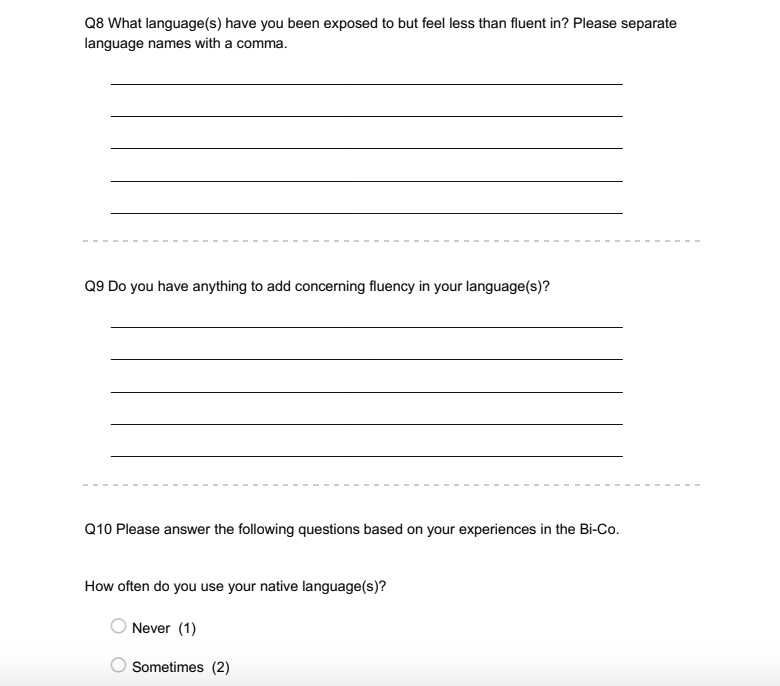What is the survey?
The data represented on this website was collected through a survey sent to each student, faculty, and staff member at Haverford College and at Bryn Mawr College. Measures were taken to ensure confidentiality, and the survey went through an IRB approval process for each college. The online questionnaire was made up of approximately 15 questions relating to the participant’s role on campus, language(s) and dialects, and their experience with their language(s) on the bi-college campuses. At the end of the survey, they were also given the opportunity to provide their email address to participate in interviews regarding their experience with language on campus. All questions were optional; their individual completion was not required for response submission.

Who is taking the survey?
The survey was disseminated to both Bryn Mawr’s and Haverford’s campuses in late March 2019 and early April 2019.
The last update included in this summary is from April 16, 2019. Of those that responded, there were 328 respondents from Haverford and 189 from Bryn Mawr. The majority of these responses came from students (HC: 272, BMC: 140), though there were also responses from faculty at Haverford (38 faculty members) and staff from Bryn Mawr (29 staff members).
The above numbers do not account for respondents who cross-listed their roles on the campus(es) as a combination of students, staff, and/or faculty. The lower number of Bryn Mawr respondents is most likely due to confusion and technical difficulties that resulted in a need to scrap the first iteration of the survey and re-start data collection in a second round.
Relation to our class
In Spring 2019, our class “Linguistic Diversity, Threats to Diversity, and Resistance” discussed a variety of linguistic issues including perception and use of language, justice in a linguistic context, and how to promote awareness of linguistic diversity and discrimination on campus and beyond. The conversations that our class had about these topics culminated in the completion of this project, Our Languages.
Our goal for the survey was to begin collecting information about linguistic diversity and discrimination, including how many and which languages are spoken in the Bi-Co, as well as the ways in which languages affect people’s lives on campus. We assert that listening to members of the Bi-Co and their experiences will help our community begin a dialogue about issues that too often go unaddressed.